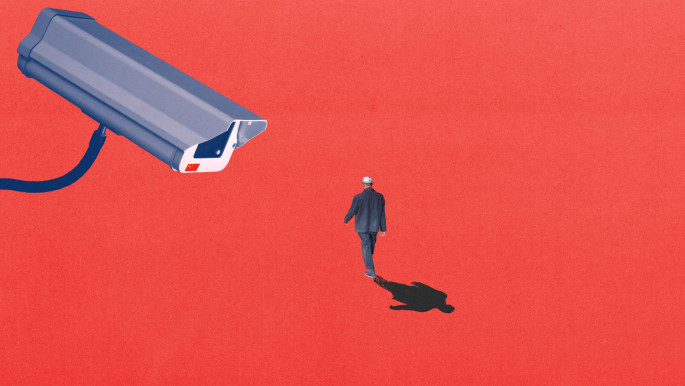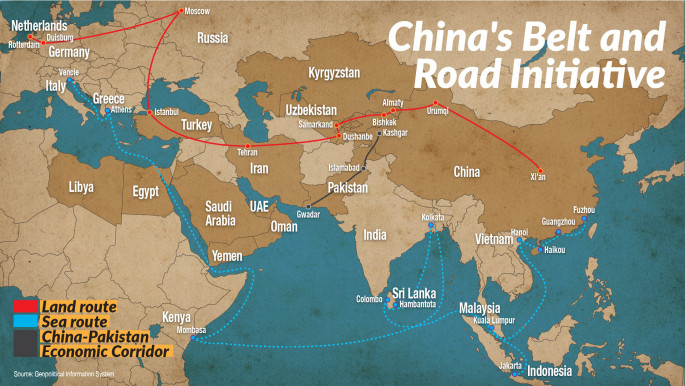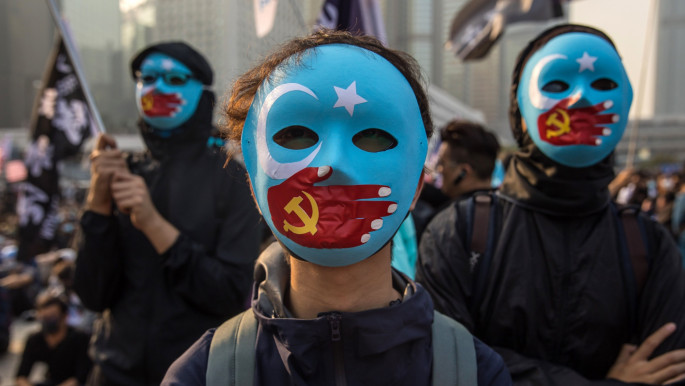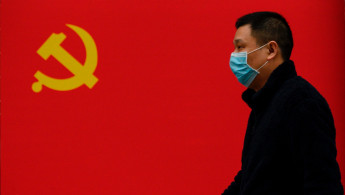Covid-19 diplomacy: Mapping China's Health Silk Road in the Middle East
A parallel branch of Beijing's mega-project, the Belt and Road Initiative (BRI), it has great symbolic impact for all partner countries under the BRI umbrella.
Initially, the novel coronavirus pandemic struck the province of Wuhan in China before the outbreak spread out to further regions. As the pandemonium over the shortage of masks and ventilators mounted, Beijing started sending aid and donations to countries struck by Covid-19. And when the pandemic reached the Middle East, China was significantly active in helping GCC allies in overcoming the catastrophe.
Recently, in a significant move, Riyadh also finalised a $265 million deal with Beijing to combat the virus effectively. Handing over the management and organisation of their anti Covid-19 efforts, the Saudis expect rapid results and the fact that China had re-opened and was back in business gave them confidence.
Even when China was in lockdown and struggling with the virus, King Salman had called the Chinese President Xi Jinping on the phone and expressed his confidence in Beijing's ability to deal with the outbreak.
 |
When the pandemic reached the Middle East, China was significantly active in helping GCC allies overcome the catastrophe |  |
Supplying 9 million coronavirus test kits, 500 specialist technicians and six test laboratories, China took fast action. Things do seem more in control now as the Kingdom has gradually started to re-open Mecca and Medina. Religious pilgrims could still generate a good amount of revenue, even though there will be fewer travellers in the beginning.
However, Moody's has given the Kingdom a negative rating and lockdowns have been a major setback. Making matters worse, the pandemic has damaged prospects for tourism, airline carriers and the hotel industry for the year ahead at the very least. Reopening religious sites and re-booting some economic sectors is necessary to revive the floundering Saudi economy.
 |
|
| Read more: How coronavirus presented China with a dream opportunity for surveillance |
Enabling the proper launch of China's 'medical corridor', the Middle East comes solidly into the BRI radius as all GCC countries are part of policy co-ordination mechanisms such as the China-Arab Cooperation Forum and the Strategic Dialogue between China and these oil-rich states. According to Beijing, "any type of bilateral cooperation (with China) can be considered part of the Belt and Road."
Interestingly, most people were unaware about the existence of the 'Health Silk Road', a health mechanism planned to work in tandem with the Digital Silk Road, one more branch of the BRI. Using the logistics deployed along the BRI land and sea corridors, it sounded practical, but progress remained sluggish and the Health Silk Road has only been properly implemented since the pandemic.
First mentioned on paper in 2015, it was a short to medium term goal of the BRI and it was bracketed as the Three-Year Plan for the Implementation of the "Belt and Road Initiative" Health Exchange and Cooperation (2015-2017).
Formally launching this 'medical corridor' in 2017, Chinese President Xi Jinping had signed a MoU with the World Health Organisation (WHO) to work for the improvement of public health in BRI countries. Visualising China as a leader in medical sciences, Xi had highlighted the need to promote a "community of common destiny for mankind."
 |
By using the very same corridors, ports and logistics hubs that are part of the Belt and Road Initiative, Beijing is increasing soft power in the region |  |
Notably, with its health corridor, China is also scoring some valuable diplomatic points.
First, by using the very same corridors, ports and logistics hubs that are part of the BRI, Beijing is increasing soft power in the region. Reaching out to nearly 89 countries with 'Silk Road' health care, it has access to new regions. And in this benevolent role, China has also swept aside most of the criticism and controversies it faced since the Wuhan outbreak.
 |
|
| Click to enlarge |
Chinese envoys are busy facilitating economic partners in the Gulf, as Chinese Ambassador Lei Weiqing recently observed, "viruses know no borders, and it takes solidarity and cooperation to defeat a pandemic. As the Chinese saying goes, you present me with fruits, and I would reward you with a jade."
Second, China looks more organised and pro-active than the West, even though it has been successful mostly because it was in the right place at the right time. During this time, countries in the West had an inward focus as they were engulfed in their own health emergencies. By appearing more efficient in these tough times, Beijing is regaining credibility.
 |
Having made significant investments across the Middle East over the last two decades, multiple new business opportunities are opening up for China |  |
Third, having made significant investments across the Middle East over the last two decades, multiple new business opportunities are opening in this region for China and it can benefit from the new era ahead of digitalisation and technology.
Ostensibly, the Digital Silk Road would now be connected and according to the original concept of the plan, health facilities would be more cutting edge once paired with technology. During this pandemic, diagnostic technology, surveillance and artificial intelligence could be deployed together with the Health Silk Road and Digital Silk Road.
 |
|
| Read more: Modern slavery and retail: UK cotton imports from China under scrutiny over forced Uighur labour |
Finally, these achievements could enable it to claim a more important role on global platforms such as the IMF and G20. If the pandemic extends over a longer time, global power structures could be affected forever.
According to Jonathan Hillman from the Center for Strategic and International Studies in Washington D.C., "Beijing is using the network of recipient states that it has cultivated through the Belt and Road to legitimize its response to Covid-19."
Where the Middle East is concerned, it could be placed in a delicate position due to China's medical diplomacy. According to a Reuters report, closer ties with Beijing could increase tensions with Washington. As the top US diplomat in the Middle East, Assistant Secretary of State for Near Eastern Affairs, David Schenker observed, "These (Gulf) states have to weigh the value of their partnership with the United States."
However, there is no guarantee when the pandemic will be over. Many advanced nations with better health infrastructure and expertise are still badly engulfed. The virus could revisit even though stringent lockdowns are enforced according to the 'China model'. Also, there have been quality issues with coronavirus test kits at times and it is not sure that Chinese strategies are as effective as they seem.
China was successful in containing the epidemic on the domestic front but not much data or information is provided. Thus, nothing definite can be predicted about this health crisis and if a second global wave of Covid-19 arrives, China's medical diplomacy will be to no avail.
Sabena Siddiqui is a foreign affairs journalist, lawyer and geopolitical analyst specialising in modern China, the Belt and Road Initiative, Middle East and South Asia.
Follow her on Twitter: @sabena_siddiqi



